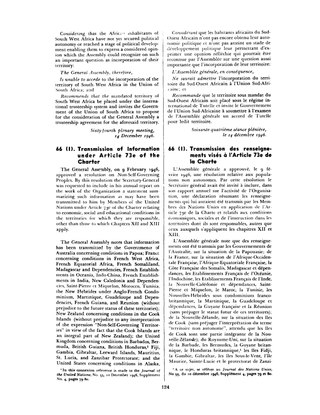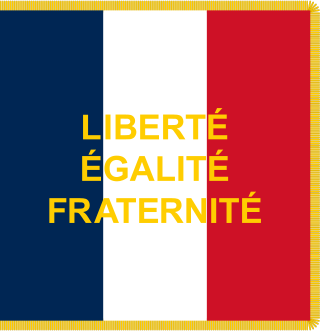Djibouti is a country in the Horn of Africa bordered by Somalia to the east, Eritrea to west and the Red Sea to the north, Ethiopia to the west and south, and the Gulf of Aden to the east.

Politics of Djibouti takes place in a framework of a presidential representative democratic republic, whereby the executive power is exercised by the President and the Government. Legislative power is vested in both the Government and the National Assembly. The party system and legislature are dominated by the socialist People's Rally for Progress. In April 2010, a new constitutional amendment was approved. The President serves as both the head of state and head of government, and is directly elected for single six-year term. Government is headed by the President, who appoints the Prime Minister and the Council of Ministers on the proposal of the latter. There is also a 65-member chamber of deputies, where representatives are popularly elected for terms of five years. Administratively, the country is divided into five regions and one city, with eleven additional sub-prefecture subdivisions. Djibouti is also part of various international organisations, including the United Nations and Arab League.
Secession is the formal withdrawal of a group from a political entity. The process begins once a group proclaims an act of secession. A secession attempt might be violent or peaceful, but the goal is the creation of a new state or entity independent of the group or territory from which it seceded. Threats of secession can be a strategy for achieving more limited goals.

Bophuthatswana, officially the Republic of Bophuthatswana, and colloquially referred to as the Bop and by outsiders as Jigsawland was a Bantustan that was declared (nominally) independent by the apartheid regime of South Africa in 1977. However, like the other Bantustans of Ciskei, Transkei and Venda, its independence was not recognized by any country other than South Africa.

The French Union was a political entity created by the French Fourth Republic to replace the old French colonial empire system, colloquially known as the "French Empire". It was de jure the end of the "indigenous" status of French subjects in colonial areas. It was dissolved in 1958, after the downfall of the Fourth Republic.

The French Territory of the Afars and the Issas was the name given to present-day Djibouti between 1967 and 1977, while it was still an overseas territory of France. The area was formerly known as French Somaliland. Its name derives from the Afar people of Djibouti and the Somali Issa clan.

Greater Somalia sometimes also called Greater Somaliland is the geographic location comprising the regions in the Horn of Africa in which ethnic Somalis live and have historically inhabited.

Elections in Benin take place within the framework of a multi-party democracy and a presidential system. Both the President and the National Assembly are directly elected by voters, with elections organised by the Autonomous National Electoral Commission (CENA).

The decolonisation of Africa was a series of political developments in Africa that spanned from the mid-1950s to 1975, during the Cold War. Colonial governments gave way to sovereign states in a process often marred by violence, political turmoil, widespread unrest, and organised revolts. Major events in the decolonisation of Africa included the Mau Mau rebellion, the Algerian War, the Congo Crisis, the Angolan War of Independence, the Zanzibar Revolution, and the events leading to the Nigerian Civil War.

Chapter XI of the United Nations Charter defines a non-self-governing territory (NSGT) as a territory "whose people have not yet attained a full measure of self-government". Chapter XI of the UN Charter also includes a "Declaration on Non-Self-Governing Territories" that the interests of the occupants of dependent territories are paramount and requires member states of the United Nations in control of such territories to submit annual information reports concerning the development of those territories. Since 1946, the UNGA has maintained a list of non-self governing territories under member states' control. Since its inception, dozens of territories have been removed from the list, typically when they attained independence or internal self-government, while other territories have been added as new administering countries joined the United Nations or the UN General Assembly (UNGA) reassessed their status.

The French Community was the constitutional organization set up in October 1958 between France and its remaining African colonies, then in the process of decolonization. It replaced the French Union, which had reorganized the colonial empire in 1946. While the Community remained formally in existence until 1995, when the French Parliament officially abolished it, it had effectively ceased to exist and function by the end of 1960, by which time all the African members had declared their independence and left it.

The Front for the Liberation of the Somali Coast was a nationalist organization, and later a guerrilla group that fought for the independence of Djibouti from France. The Front de Libération de la Côte des Somalis (FLCS) was recognized as a national liberation movement by the Organization of African Unity (OAU), which participated in its financing. FLCS was able to obtain support from Arab countries such as Algeria.

The Union of Popular Forces for Democracy and Progress–Sawaba is a political party in Niger, founded as the Nigerien Democratic Union in 1954. The original party, founded by Nigerien Progressive Party (PPN) co-leader Djibo Bakary when he was expelled from the PPN. In the mid-1950s it created a broad coalition led by urban leftists but forged of conservative rural notables, especially from Hausa areas, which dominated the nascent Nigerien independence movement. In this period it was renamed Mouvement Socialiste Africain–Sawaba, and then simply Sawaba. In pushing for complete independence from France in a 1958 referendum, the party fractured. At independence in 1960 it found itself in opposition and outlawed by Niger's first president, Hamani Diori. From exile, the party attempted an abortive guerrilla campaign in the mid-1960s, and then largely disappeared. Its leadership returned to Niger following the 1974 military coup, but soon found themselves arrested, in exile, or marginalised. Following the return of democracy in 1991, the now elderly Bakary re-founded the party as UDFP–Sawaba. In the 1993 elections it took only a small numbers of votes. Within the year, the party had split, with a new faction (UDFR–Sawaba) joining the government coalition. Despite Bakary's death in 1998 and their continued electoral underachievement, both parties holding the Sawaba name continue.

An independence referendum was held in the Comoros on 22 December 1974. The overall result was a strong "yes" vote, with 94.57% of voters voting for independence and almost all the "no" votes being cast in Mayotte, where there was a majority for remaining under French control. In contrast, on Mohéli only five out of 6,059 votes were against independence. Voter turnout was 93.3%.

An independence referendum was held in French Somaliland on 19 March 1967. It was ordered by then President of France, General Charles de Gaulle, in response to rioting and demonstrations upon an official visit he made to the territory the year before. Voters rejected independence from France by a 22-point margin.

Constituent Assembly elections were held in the French Territory of the Afars and Issas on 8 May 1977 alongside a referendum on independence. The elections were boycotted by the Djibouti Liberation Movement, the National Union for Independence and the Popular Liberation Movement, resulting in the People's Rally for Independence winning all 65 seats.

A constitutional referendum was held in Guinea on 28 September 1958 as part of a wider referendum across the French Union on whether to adopt the new French Constitution. If the territory voted to accept the new constitution, it would then have four months to decide whether to
- Preserve the status of overseas territory.
- Become a state of the French Community.
- Become an overseas department.

The modern political history of Zimbabwe starts with the arrival of white people to what was dubbed Southern Rhodesia in the 1890s. The country was initially run by an administrator appointed by the British South Africa Company. The prime ministerial role was first created in October 1923, when the country achieved responsible government, with Sir Charles Coghlan as its first Premier. The third premier, George Mitchell, renamed the post prime minister in 1933.

Independence Day, observed annually on 27 June, is a national holiday in Djibouti. It marks the territory's declaration of independence from France. An independence referendum was held in the French Territory of the Afars and the Issas on 8 May 1977 alongside elections for a Constituent Assembly. Unlike previous plebiscites in 1958 and 1967, this time the territory became independent as Djibouti on 27 June 1977. Djibouti Independence Day is a national holiday, with workers given a day off. Independence Day is associated with military parades, fireworks, concerts, fairs, and political speeches and ceremonies, in addition to various other public and private events celebrating the history and culture of Djibouti.















